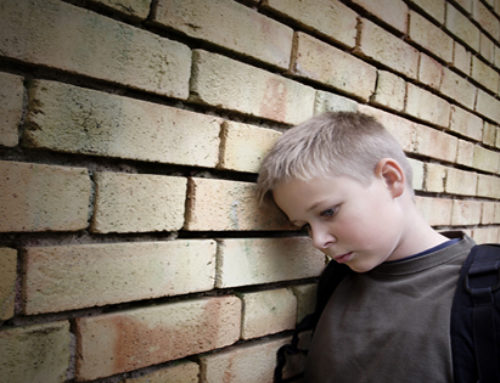By Dr. Josh Eudowe
We live in a world where stress and anxiety causing situations are waiting around every corner. People are working longer hours, face being caught up in disruptive routines, find it hard to keep on top of home life and worry about their financial situations. No matter who you are, you will encounter stress and anxiety more often than not.
Stress can be detrimental to your health and cause conditions such as hypertension, increase the risk of heart attack or stroke and increase the chance of developing mental health issues. The same can be said about anxiety which is a leading cause of stress the world over.
People tend to outwardly reflect their emotional and mental state without even realizing it. Stress and anxiety are contagious and can be picked up on very easily, especially by children. The problem with this is that children do not only struggle to understand the complexity of stressful situations, but they may also feel that they are the cause of it.
People are perceptive of those around them and just seeing someone stressed or anxious is enough to raise cortisol levels and increase the levels of stress and anxiety you experience. If you look at anxiety as being conductive, you will notice that it wants to travel from one person to another much like electricity through water.
Children and Stress
While stress can effect even the most resilient adult, the majority can identify, somewhat, the root of the issue and can try to rationalize and fix the problem in their mind. Children are not lucky enough to know how to do this properly and find themselves becoming more and more anxious about a given situation. A child is like a sponge – they soak up so much of what is happening around them, and they retain it. Children also struggle to express themselves, so their ability to understand and articulate what is concerning them is often a tremendous challenge.
The issue arises when a parent or caregiver is suffering from stress or anxiety and outwardly displays this in a less than subtle fashion. Children tend to mimic those around them and if the adult struggles with certain situations, children can often adopt a similar approach. For example, maybe a parent is suffering from the breakdown of a relationship and finds themselves consumed with anger, sadness, and fear. Children may see this behavior and become wary of relationships and those who they trust. Another example is when parents tend to be consumed with worry when a child leaves their sight. The stress and anxiety that the parent feels can be contagious and children can quickly believe that, “because my mom and dad are worried, I should be too!”
Furthermore, when children fail to understand the source of anxiety, their imagination can run wild. Parent who try and hide anxiety and stress from their children will often notice subtle (or sometimes, not so subtle) changes in their behaviour. It’s not uncommon for a 10 to 15 year old to develop anxiety about financial stability simply from overhearing conversations around the house or when parents talk on the phone. Children should be protected from these as much as possible as extreme worry, fear and doubt can significantly affect them emotionally and physically.
A Problem Shared Can be a Problem Multiplied
Don’t hold all of your worries close to your heart. Learn to open up and share these thoughts and feelings with someone you can trust and someone who can remain calm. A good way to look at it is if you cut your finger when cutting vegetables and have to go to the hospital. Would you want the E.R. physician to be panicking and screaming with you? or do you want them to remain calm and help fix the problem?
It’s important not burden your children with your problems, or worse, blame them for your stress. However, if there are real issues going on, it’s okay to explain to them, in an age-appropriate way, why you may be acting different.
Conclusion
As we all know, stress is not only bad for the mind but the body as well. Try to find an outlet for your stress and anxiety and take some time to try and put things into perspective. Most of the time people overthink their issues and things become so much bigger than they really are, making life seem negative… and negativity attracts negativity. Be observant of how your actions affect those around you, because as the title says, stress and anxiety are contagious and the way you handle them will determine whether they continue burning like a raging fire, of fizzle out and leave no permanent damage in their wake.





